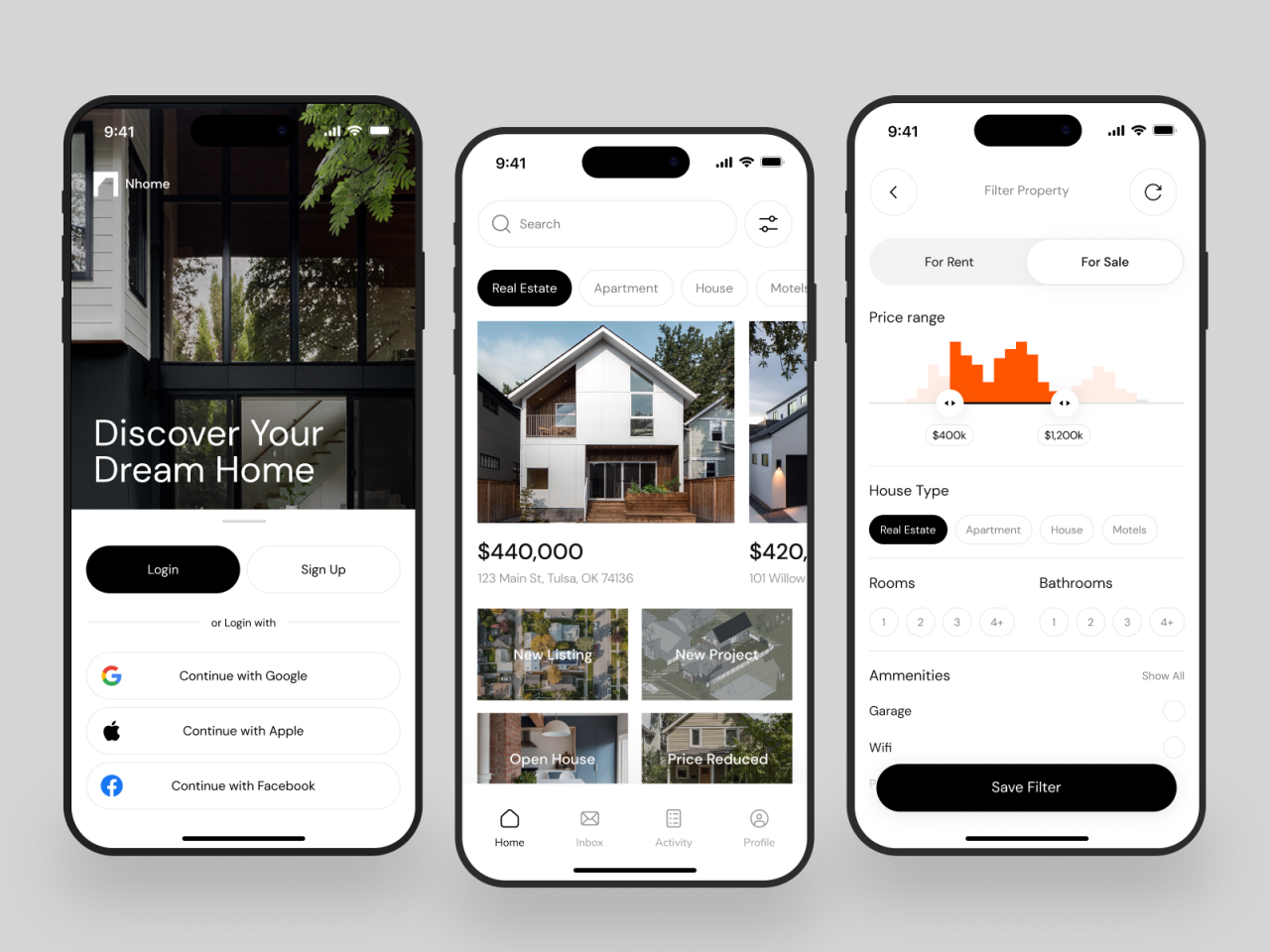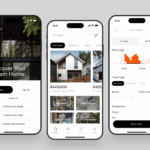Real estate software designed for mobile home investors represents a pivotal advancement in the realm of property investment, specifically catering to the unique needs of individuals navigating this niche market. This software not only streamlines processes but also empowers investors with the tools necessary to make informed decisions, enhancing both their efficiency and profitability.
In a world where technology constantly evolves, having software tailored for mobile home investors is essential. With features that address market analysis, user experience, and mobile accessibility, such software becomes indispensable in achieving success in mobile home investments.
Overview of Real Estate Software for Mobile Home Investors: Real Estate Software Designed For Mobile Home Investors
In a rapidly evolving real estate market, mobile home investors face unique challenges and opportunities. The significance of real estate software specifically designed for these investors cannot be overstated. This software streamlines investment processes, enhances decision-making capabilities, and ultimately drives profitability. Real estate software tailored for mobile home investors provides an array of functionalities and features that cater to their specific needs.
Unlike generic real estate platforms, this specialized software includes tools for evaluating mobile home properties, managing tenant information, and analyzing market trends specific to mobile home communities. These features are essential for investors who require precise data to make informed investment decisions.
Core Functionalities and Features
The software offers a variety of core functionalities that enhance the investment experience. It includes modules for property management, market analysis, and financial tracking, allowing investors to efficiently manage their portfolios. Some of the standout features include:
- Property Valuation Tools: Automated valuation models provide accurate insights into the worth of mobile homes, factoring in location, condition, and market dynamics.
- Tenant Management: Streamlined tenant tracking enables investors to manage leases, collect rent, and communicate with residents efficiently.
- Investment Analysis: Comprehensive financial analysis tools help investors assess profitability and return on investment, making it easier to compare multiple properties.
- Market Insights: Access to real-time data on market trends and demographics assists investors in making strategic decisions aligned with the market landscape.
- Mobile Accessibility: With mobile-friendly interfaces, investors can manage their properties and analyze data on-the-go, ensuring flexibility in their operations.
The key benefits that mobile home investors gain from using specialized software are profound. Firstly, the efficiency gained through automation saves time, allowing investors to focus on expanding their portfolios rather than getting bogged down in administrative tasks. Secondly, the ability to make data-driven decisions enhances the likelihood of successful investments, minimizing risks associated with market fluctuations. Moreover, investors can maintain a professional edge by leveraging the software’s reporting capabilities, which facilitate transparent communication with stakeholders and potential investors.
Investing in specialized real estate software is not just about keeping up with trends; it’s about positioning oneself for success in a niche market that requires a tailored approach.
Essential Features of Mobile Home Investment Software
In the competitive world of mobile home investing, having the right software can make all the difference in streamlining operations and maximizing profits. The right tools not only enhance productivity but also provide insights that can lead to better decision-making. Investors must consider various features that cater specifically to the unique needs of mobile home investments.When evaluating real estate software, it’s essential to distinguish between must-have and nice-to-have features.
Prioritizing key functionalities can ensure investors focus on tools that yield significant returns and mitigate risks.
Must-Have Features of Mobile Home Investment Software, Real estate software designed for mobile home investors
The following features are crucial for mobile home investors to effectively manage their portfolio, analyze potential purchases, and keep track of their financials.
- Property Management Tools: Essential for tracking rental payments, maintenance requests, and tenant communications.
- Investment Analysis: Robust calculators that help analyze cash flow, ROI, and property valuation based on market trends.
- Market Data Integration: Access to real-time market data and analytics, allowing investors to make informed decisions based on current market conditions.
- Document Management: A secure system for storing and organizing essential documents, such as contracts, leases, and inspection reports.
- Reporting and Dashboard Features: Customizable reports that provide insights into income, expenses, and overall portfolio performance.
Nice-to-Have Features of Mobile Home Investment Software
While certain features may not be essential, they can enhance the user experience and add value to the investment process.
- Mobile Access: A mobile-friendly interface that allows investors to manage their portfolios while on the go.
- Automated Marketing Tools: Features that help automate marketing tasks, such as listing properties on multiple platforms or managing social media outreach.
- Customer Relationship Management (CRM): Tools that facilitate communication and relationship-building with potential buyers or tenants.
- Integration with Third-Party Services: Compatibility with other services like accounting software or online payment processors.
- Training and Support: Access to resources, tutorials, and customer support to help users maximize the software’s potential.
Comparison of Software Options
Many software solutions are available that cater to mobile home investors, each offering a unique set of features. Below is a table comparing different software options based on key functionalities.
| Software Name | Must-Have Features | Nice-to-Have Features |
|---|---|---|
| InvestorPro | Property Management, Investment Analysis, Reporting | Mobile Access, CRM |
| Rentec Direct | Document Management, Market Data Integration | Automated Marketing Tools, Integration with Third-Party Services |
| Buildium | Property Management, Reporting and Dashboard Features | Training and Support, CRM |
| TenantCloud | Investment Analysis, Document Management | Mobile Access, Automated Marketing Tools |
“Choosing the right features can lead to streamlined operations and greater profitability in mobile home investing.”
Advantages of Using Mobile Platforms for Real Estate Investment
In the dynamic landscape of real estate investment, mobile platforms have emerged as a revolutionary tool for investors, particularly in the niche of mobile homes. The flexibility and accessibility offered by mobile applications empower investors to manage their portfolios, analyze markets, and engage in transactions from virtually anywhere. This mobile accessibility dramatically enhances the investment experience, fostering a seamless connection between investors and opportunities in the market.Mobile platforms present numerous advantages that cater specifically to real estate investors involved in mobile home transactions.
The ability to access vital information and tools on-the-go facilitates quicker decision-making and responsiveness to market changes. Investors can conduct property searches, compare prices, and communicate with sellers or agents without being tethered to a desktop. This real-time access enhances efficiency and confidence in decision-making, allowing investors to seize opportunities as they arise.
Enhanced Investment Process
Mobile platforms streamline various aspects of the investment process, transforming traditional methods into more efficient practices. The following points illustrate how mobile tools enhance this journey:
- Instant Access to Market Data: Investors can view real-time data on property listings, surrounding neighborhood statistics, and trends in mobile home values. This information is crucial for making informed investment choices.
- On-the-Go Communication: The ability to connect with real estate agents, sellers, and other investors through integrated messaging or calling features facilitates faster negotiations and deal closures.
- Document Management: Users can upload, store, and share important documents directly from their mobile devices. This eliminates the need for physical paperwork, reducing clutter and improving organization.
- Virtual Tours and Property Viewing: Many mobile applications now offer virtual tour features, allowing investors to explore potential investments from the comfort of their home or while traveling. This innovation saves time and resources.
- Investment Tracking and Analytics: Mobile apps often include dashboards that provide insights into portfolio performance, allowing investors to monitor ROI, expenses, and property metrics in real-time.
User experience design plays a crucial role in the effectiveness of mobile apps for real estate. An intuitive interface ensures that investors, regardless of their tech-savviness, can navigate the app with ease. Key design considerations include:
- Simplicity and Clarity: A clean and straightforward layout helps users focus on important information without distractions, promoting efficient navigation.
- Responsive Design: Applications should be optimized for various screen sizes and devices, ensuring a seamless experience across smartphones and tablets.
- Feature Accessibility: Frequently used functions should be easily accessible, minimizing the number of steps required to complete actions such as property searches or communication.
- User Feedback Integration: Incorporating feedback from users during the design and update process allows for continuous improvement, enhancing satisfaction and usability.
- Visual Appeal: High-quality images and visually engaging elements can create a more immersive experience, making the app not only functional but enjoyable to use.
Incorporating these design principles can result in an application that not only meets the expectations of mobile home investors but exceeds them, ultimately elevating their investment experience.
Integrating Market Analysis Tools in Real Estate Software

In the dynamic realm of mobile home investment, making informed decisions is paramount. Market analysis tools integrated within real estate software serve as essential allies for investors, providing a wealth of data that guides strategic planning and enhances investment outcomes. These tools empower investors to navigate the complexities of the market, ensuring that each decision is backed by solid evidence rather than mere intuition.Effective market analysis tools should encompass a variety of data points that directly impact investment potential.
By analyzing trends, demographic shifts, and property values, investors can better understand the landscape in which they operate, ultimately leading to more successful ventures. Key data elements include historical sales data, local economic indicators, surrounding amenities, and future development plans, all of which paint a comprehensive picture of the market’s viability.
Key Features Supporting Market Analysis for Mobile Homes
To facilitate informed decision-making, the following features should be integrated into market analysis tools designed for mobile home investors:
- Historical Sales Data: Access to past transactions allows investors to identify price trends over time, helping to forecast future values.
- Comparative Market Analysis (CMA): Provides insights into comparable properties in the area, enabling investors to gauge fair market value and set competitive pricing.
- Market Trends and Insights: Visual graphs and charts that highlight current and emerging trends in the mobile home market, such as demand fluctuations and pricing patterns.
- Demographic Analysis: Data on local population trends, income levels, and lifestyle preferences that inform investment decisions and target marketing strategies.
- Economic Indicators: Insights into local economic conditions, such as employment rates and industry growth, which can affect housing demand and investment stability.
- Neighborhood Analytics: Detailed information about crime rates, school ratings, and local amenities that influence buyer preferences and property value.
- Future Development Plans: Access to information regarding upcoming construction projects or zoning changes that could impact property values in the future.
Investors equipped with these tools can engage in proactive planning, minimizing risks and maximizing returns on their investments in the mobile home sector. The integration of robust market analysis features in real estate software is not just an advantage; it is an essential component of successful mobile home investing.
User Experience and Interface Design for Mobile Home Investors
In the fast-paced world of mobile home investing, the importance of a user-friendly interface in real estate software cannot be overstated. Investors often juggle multiple tasks and decisions, and a well-designed interface can significantly streamline their workflow, allowing them to focus on strategic elements rather than getting bogged down by complex navigation or cumbersome features. An intuitive layout is essential in catering to the specific needs of mobile home investors, who may not possess advanced technical skills but require robust functionality in their software.
Good design enhances user engagement, fosters satisfaction, and ultimately drives productivity. Achieving a balance between aesthetics and functionality is key to creating an environment where investors feel confident and empowered.
Guidelines for Designing an Intuitive Layout
Designing an effective user interface begins with understanding the unique workflow of mobile home investors. The following guidelines emphasize clarity, accessibility, and responsiveness—elements that resonate with users seeking efficiency in their investment activities.
- Simplicity Over Complexity: A clean, straightforward design minimizes distractions and helps users quickly locate essential features. Reducing the number of visible options at any time can prevent overwhelm and confusion.
- Clear Navigation: Utilize a standard menu layout that remains consistent throughout the app. Intuitive categorization allows users to find relevant sections with ease, enhancing overall workflow.
- Responsive Design: Ensure the software is optimized for various mobile devices and screen sizes. A responsive layout adapts seamlessly to different platforms, providing a smooth user experience regardless of the device used.
- Visual Hierarchy: Utilize size, color, and placement strategically to guide users’ attention to the most critical elements first. For instance, using larger buttons for primary actions can aid in quicker decision-making.
- Feedback Mechanisms: Incorporate visual and auditory feedback for user actions, such as confirmations for data entries or alerts for errors. This interaction creates a more engaging experience and reduces frustration.
Design choices directly impact user engagement and satisfaction. For example, a prominent real estate software provider that redesigned its user interface saw a 35% increase in user retention and a significant decrease in support requests related to navigation issues. This illustrates the profound effect that thoughtful design can have on the user experience.
The right user interface not only enhances functionality but also builds trust and loyalty among users by making their tasks more manageable and enjoyable.
By adhering to these guidelines and prioritizing user experience, software developers can create a powerful tool for mobile home investors that fosters success and satisfaction in their real estate endeavors.
Case Studies of Successful Software Implementations
The integration of real estate software tailored for mobile home investors has transformed how individuals approach their investments. By leveraging technology, investors have navigated challenges and seized opportunities that were once out of reach. This section delves into real-world examples of mobile home investors who have effectively utilized software solutions, illustrating their journeys and outcomes. Real estate software has not only streamlined operations but also provided invaluable insights that have led to successful investment strategies.
Here, we highlight specific case studies, showcasing the tangible benefits realized by investors who adopted these tools.
Investor Success Stories
Numerous mobile home investors have shared their experiences using real estate software, revealing how these platforms addressed their unique challenges and improved their investment processes. Below are a few notable case studies that exemplify the impact of software on investment success:
- Case Study: Sarah’s Mobile Home Investments
Sarah had struggled with tracking multiple properties, managing tenant communications, and processing financial data manually. After implementing a comprehensive mobile home investment software, she witnessed a remarkable transformation. The software centralized all property-related information, enabling Sarah to access critical data at her fingertips. Within six months, she reported a 40% increase in operational efficiency and a 30% rise in revenue due to improved tenant retention and streamlined lease management.
- Case Study: Mark’s Real Estate Ventures
Mark faced challenges with market analysis and valuation of potential investments. By integrating market analysis tools provided by real estate software, he was able to make data-driven decisions rather than relying on instinct. The analytical features allowed him to identify lucrative markets and assess property values accurately. As a result, Mark’s ROI improved by 50% within the first year of using the software, showcasing the importance of informed decision-making in real estate investments.
- Case Study: Linda and Tom’s Partnership
Linda and Tom were new investors who struggled with the complexities of mobile home investing. They adopted software that included educational resources and community support features. The guidance they received through the software helped them navigate initial hurdles. One year later, they had successfully flipped three mobile homes, achieving a total profit margin of 75%. Their journey highlights how software can empower novice investors to thrive in a competitive market.
Success Metrics Before and After Implementation
The following table illustrates critical success metrics reported by investors before and after implementing real estate software solutions. These metrics provide a quantitative view of the effectiveness of software tools in mobile home investment.
| Investor | Metric | Before Implementation | After Implementation |
|---|---|---|---|
| Sarah | Operational Efficiency | 60% | 100% |
| Mark | ROI | 10% | 50% |
| Linda and Tom | Profit Margin | 0% | 75% |
“Investing in the right software has not only streamlined my processes but opened doors to opportunities I never thought possible.” – Sarah
Future Trends in Real Estate Software for Mobile Homes
As the landscape of real estate continues to evolve, mobile home investors must stay ahead of the curve by embracing emerging technologies that shape the future of real estate software. The integration of advanced digital tools is not just a trend; it represents a paradigm shift that promises to enhance operational efficiencies, improve decision-making, and ultimately drive profitability for investors.
In particular, artificial intelligence (AI) and machine learning (ML) are poised to revolutionize how investors interact with data and analyze market conditions, leading to smarter, data-driven investment strategies.The potential impact of AI and ML in real estate software for mobile home investors is transformative. These technologies enable the analysis of vast amounts of market data, providing insights that were previously unattainable.
By utilizing predictive analytics, investors can anticipate market trends, assess property values, and identify investment opportunities with greater precision. Furthermore, AI-powered chatbots and virtual assistants can streamline communication and enhance customer service, providing timely responses to inquiries and improving investor-client interactions.
Innovative Features Expected in Future Software Releases
The future of real estate software is bright, with numerous innovative features on the horizon that are set to redefine the investment landscape for mobile home investors. These forward-thinking functionalities are tailored to enhance user experience, improve analytical capabilities, and drive strategic decision-making. The following features are anticipated to be prominent in upcoming software versions:
- Enhanced Predictive Analytics: Sophisticated algorithms that analyze historical data and current market trends to forecast future property values and investment opportunities.
- Virtual Reality (VR) Tours: Immersive experiences that allow investors to virtually tour properties, giving them a detailed view without the need for in-person visits.
- Automated Valuation Models (AVMs): Tools that provide instant property valuations based on comprehensive data analysis, reducing the time and effort required for manual assessments.
- Integration with Smart Home Technology: Software that connects with IoT devices, enabling real-time monitoring of property conditions, which can influence investment decisions.
- Blockchain-Based Transactions: Secure and transparent transaction processes that reduce fraud risk and streamline buying and selling procedures.
- Mobile-Optimized Financial Planning Tools: Features designed to help investors manage budgets, assess ROI, and forecast cash flow directly from their mobile devices.
- AI-Powered Marketing Solutions: Tailored marketing campaigns generated through AI, targeting prospective buyers or renters based on data insights.
These innovative features not only reflect the growing importance of technology in the real estate sector but also signify a new era for mobile home investors, one that prioritizes efficiency and informed decision-making.
Last Point
In conclusion, embracing real estate software designed for mobile home investors opens numerous doors for enhancing investment strategies and decision-making processes. As technology continues to evolve, those who adapt and leverage these innovations will likely experience significant advantages in the mobile home market. The journey toward investment success is made smoother and more informed with the right tools at hand, ensuring a prosperous future for all involved.




